Syn.: Sisyrinchium brownei Small, Sisyrinchium exile E. P. Bicknell
Family: Iridaceae Juss.
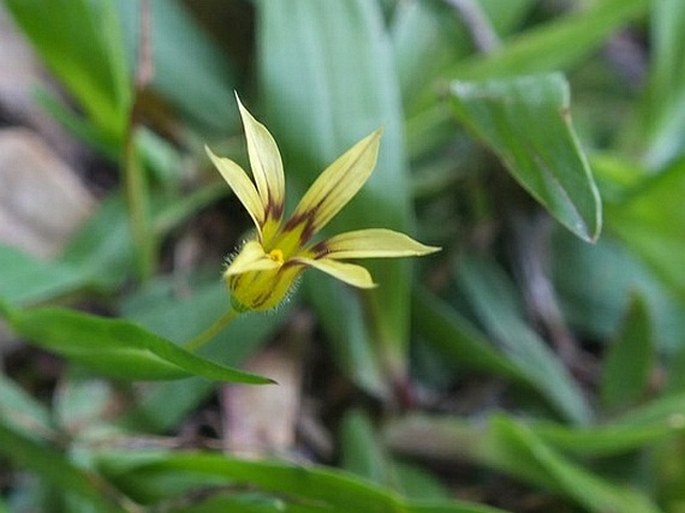
Distribution: North American species occurring only in southern coastal states from southeast Virginia to eastern Texas.
Ecology: Stream banks, wet areas bordering woods and variety of disturbed areas including cultivated grass (apparently weedy), at low elevations from sea level to 80 m. Hard to notice due to its small size. Blooms from spring until fall.
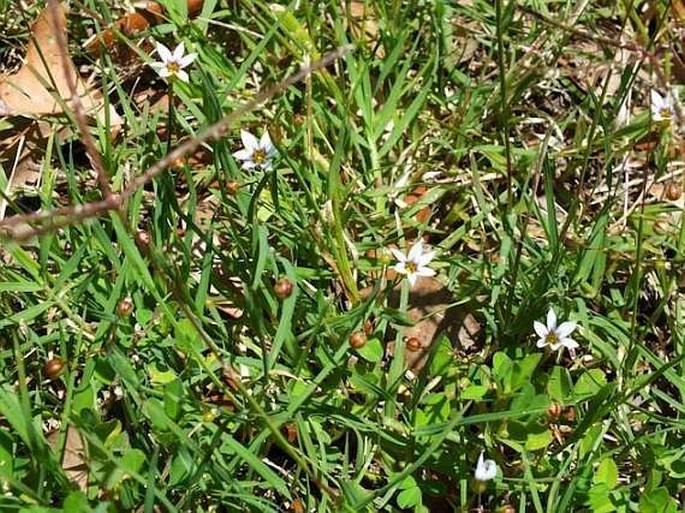
Description: Annual or short-lived perennial herb, clump-forming, up to 35 cm tall, but mostly within 10 cm. Stems branched, rarely simple, 1–2(–3) nodes, 1–2 mm thick, leaves glabrous. Inflorescence borne singly, spathes green, keels entire, flowers campanulate basally, flaring outward, tepals maroon or pink to lavender rose with purple stripes, or yellow with rosy purple bases and 3 stripes, 5–11 mm, apex acute, rarely aristate; ovary green. Fruit is a capsule, tan to maroon with darker sutures, globose; seeds globose, 0.5–1 mm.
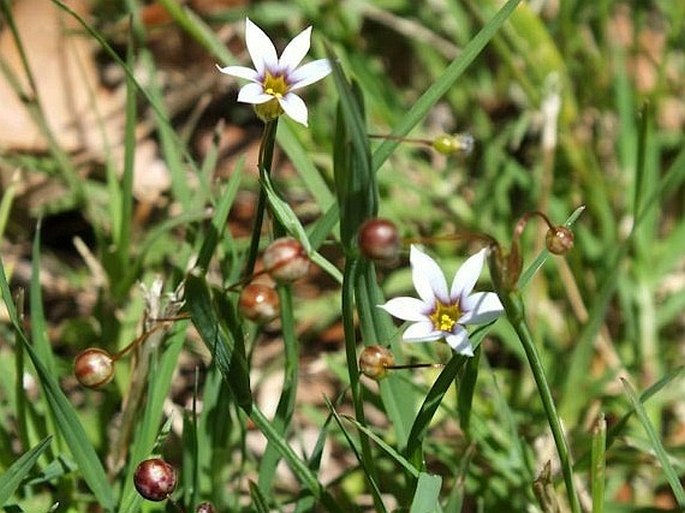
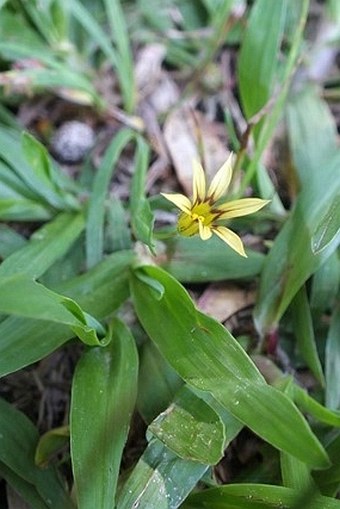
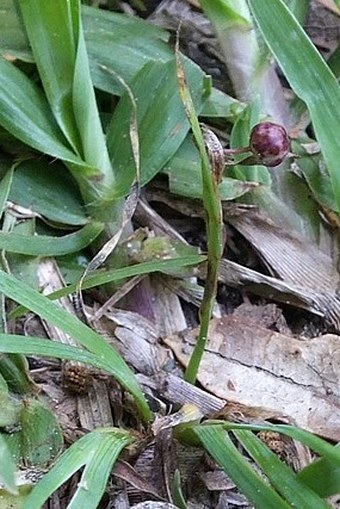
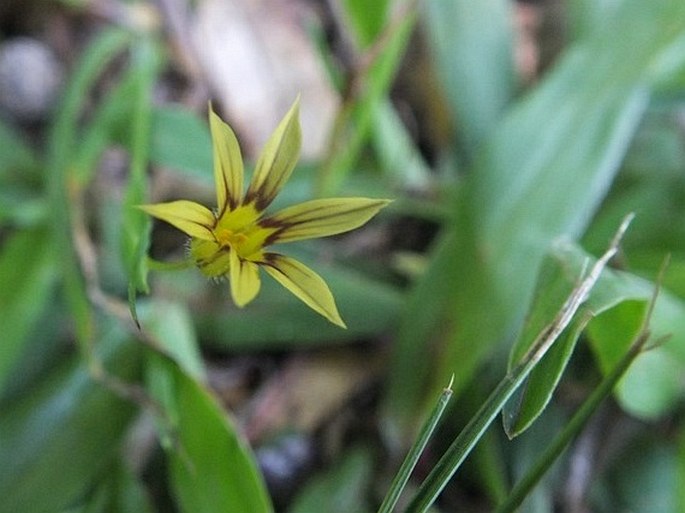
These images were taken in USA, Louisiana, Fontainebleau State Park (May 2014).


